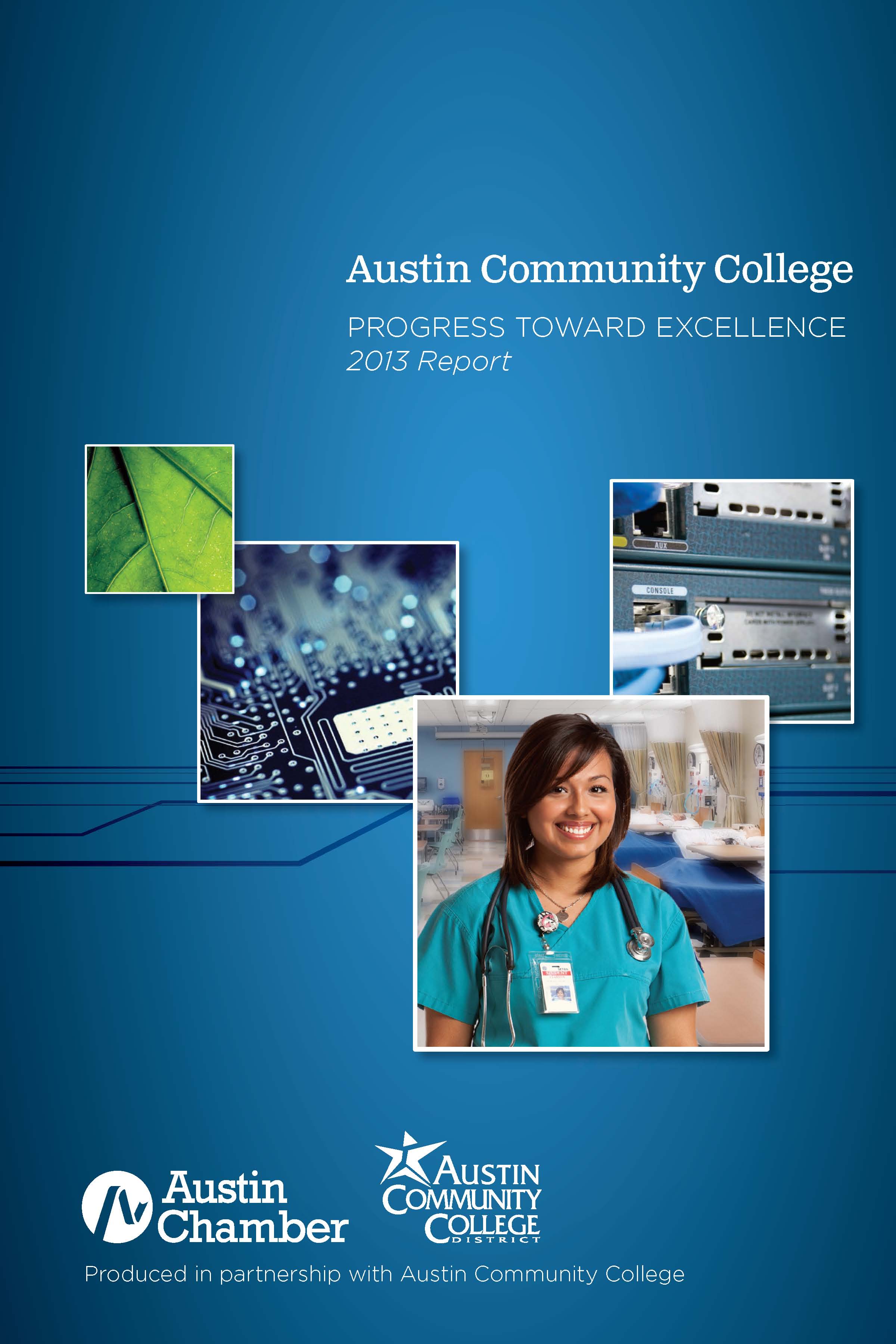 ACC has partnered with the Greater Austin Chamber of Commerce to produce a comprehensive report on the college’s contributions to the workforce and how business and industry can help grow the pipeline of skilled workers. The 2013 Progress Toward Excellence Report sets a goal for the college to produce graduates to fill 90 percent of associate degree/certificate job openings by 2015, with the help of local business and industry.
ACC has partnered with the Greater Austin Chamber of Commerce to produce a comprehensive report on the college’s contributions to the workforce and how business and industry can help grow the pipeline of skilled workers. The 2013 Progress Toward Excellence Report sets a goal for the college to produce graduates to fill 90 percent of associate degree/certificate job openings by 2015, with the help of local business and industry.
“Austin Community College is a critical component of Central Texas’ quality of life and our economic competitiveness,” said Tony Budet, University Federal Credit Union CEO and the progress report task force chair. “ACC is not only an affordable pathway to a bachelor’s degree, it also provides workplace degrees and certificates that are in high demand. The Chamber commends the college for taking steps to expand its capabilities to produce more skilled graduates in key fields, like IT and health care.”
The Texas Workforce Commission estimates an additional 3,380 associate degree/certificate workers will be needed annually in Metro Austin from 2010 through 2020. ACC had 2,960 overall completions in 2011-12, fulfilling nearly 88 percent of local need.
Additional report findings:
- ACC had 905 health sciences completions in 2011-12, representing approximately 65 percent of the local need in these fields. ACC health sciences students excel on licensure exams, with many program pass rates at or near 100 percent.
- ACC produced 452 applied technology completers for the 2011-12 year, roughly 61 percent of the projected annual local need. The college is developing a new IT program that will potentially dramatically reduce time to completion, beginning this fall.
“ACC is dedicated to increasing student success and expanding training programs that feed the workforce pipeline,” says Dr. Richard Rhodes, ACC president/CEO. “We look forward to developing new partnerships with regional business and industry to expand our training facilities and learning opportunities – essential to helping more students gain the skills and knowledge necessary for an elite workforce.”
ACC already works with key stakeholders across Central Texas to enhance opportunities for students. For example:
- Samsung Technician Apprenticeship Program: Qualified students work part time at Samsung’s Austin semiconductor plant while they complete their associate degree.
- Clinical Education Center at Brackenridge: A clinical training facility opened in partnership with the Seton Family of Hospitals; enables ACC to increase nursing program capacity. The college now graduates 250+ registered nurses each year, with 99 percent of program graduates passing the RN exam in 2011-12.
- Career Program Advisory Committees: Composed of industry representatives who guide curriculum to ensure it reflects the latest knowledge and best practices.
In the report, the Chamber makes the following recommendations:
- ACC should set benchmarks which define comparable performance with peer institutions.
- Due to conflicting definitions, ACC should define what a “successful” student is, to help it carry out necessary changes in improving student success rates.
- To serve a rising Central Texas population, ACC should increase its enrollment target to 50,000 students for 2015 through increasing retention.
- That the Chamber work with ACC to improve employment demand data.
- ACC should create a Community Accountability Policy that addresses capacity and performance relative to community interests.
- Support annexation of additional tax district communities.
The entire report is available on ACC’s website.
Back to Top
